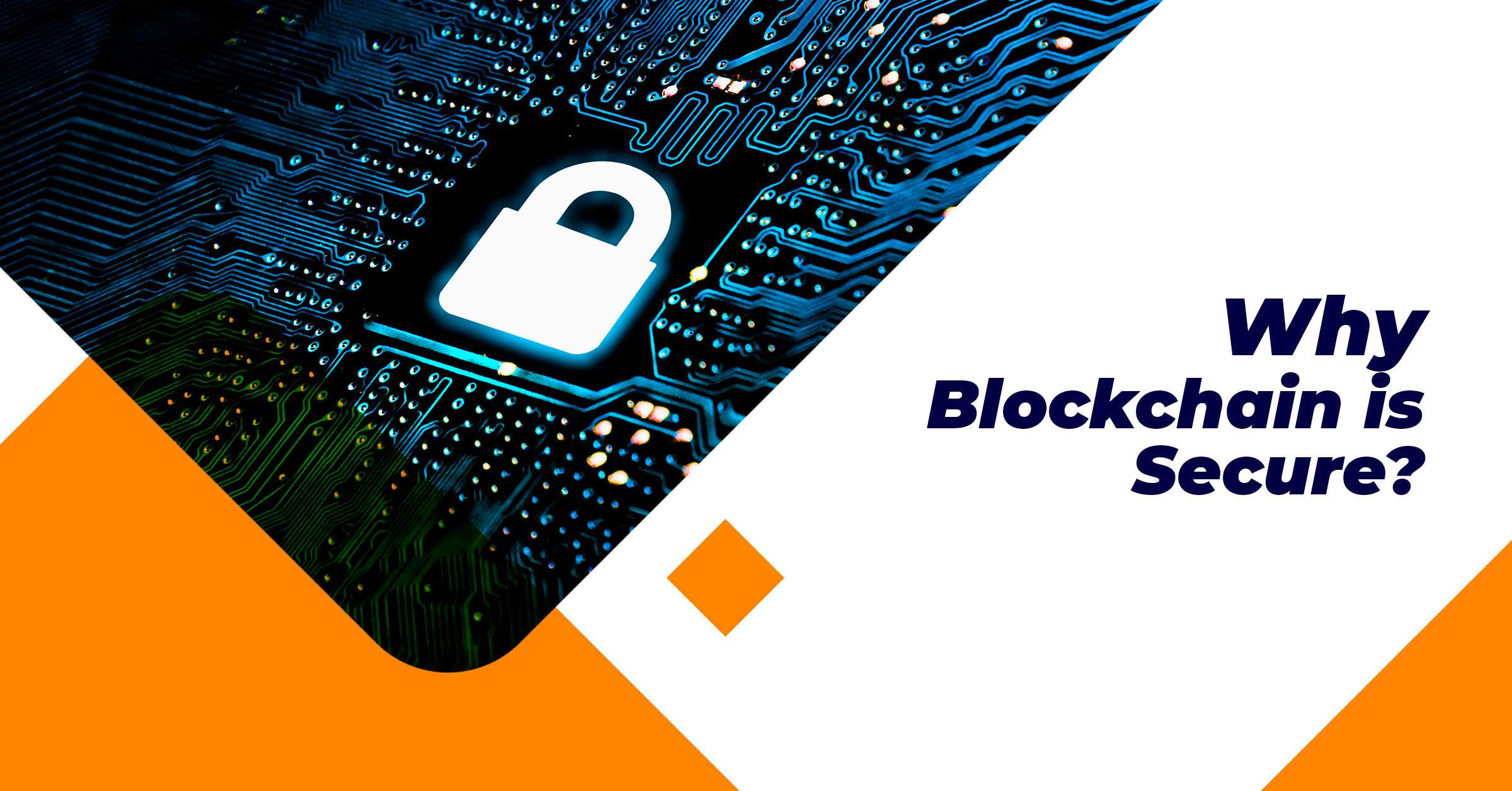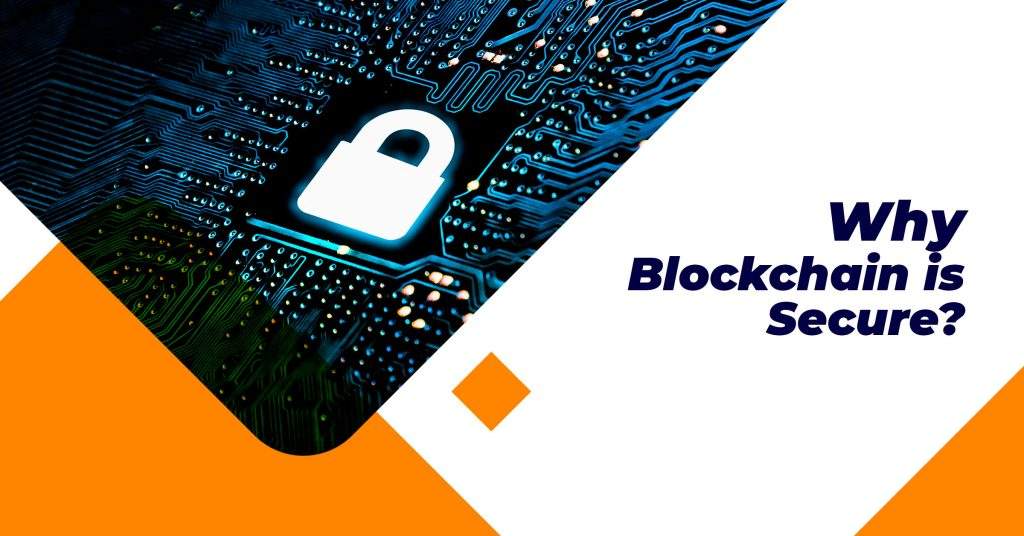
Why Blockchain Is Secure?
In simple words, Blockchain is a decentralized database containing sequential, cryptographically connected blocks of asset transactions that are digitally signed, controlled by a consensus model. A Blockchain represents a move towards transparency and not giving importance to traditional trust agents.
Blockchain is a disruptive technology as it can digitize, decentralize, secure, and incentivize the validation of transactions. A vast number of companies from various fields are recently evaluating the benefits and strategic differentiators possible if they leverage Blockchain. Blockchain technology seems to have the potential to enhance security, improve processes and systems in the financial services domain in both and private sphere where accurate, tamperproof record-keeping is necessary.
All these properties of Blockchain make it a popular technology increasingly being adopted in industries like finance, healthcare, aviation, global logistics and shipping, transportation, music, manufacturing, security, automobile, and governance. All these sectors are increasingly influenced by Blockchain technology, and the experiments with different Blockchain models are popular among these industries.
Numerous Blockchain experts are already working in companies in these sectors, and many more Blockchain professionals are still the demand of several other industries.
Characteristics of Blockchain
Here are some critical characteristics of Blockchain, which defines the capability of the technology to make it suitable for every industry:
- Digital: Blockchain stores information in digital form and eliminates the requirement of manual documentation.
- Distributed: Blockchain provides distributed control to all the participants in the transaction chain. This ensures that one point’s failure won’t affect the whole operation, and the remaining nodes will continue to operate without any disruption.
- Immutable: All the transactions in a Blockchain are encrypted, covering date and time, the participants, and the hash to the previous block.
- Consensus-Based: On Blockchain, it is necessary to obtain unanimous approval from all the parties to execute any transaction. These rules are also subjected to alteration according to circumstances.
- Digital Signatures: The transactions on Blockchain require unique digital signatures to exchange the transactional value. This proves to be critical in avoiding fraud in record management.
- Consistency: Data and information on a Blockchain is complete, consistent, timely updated, and altered, more accurate, and comprehensively available, which ensures non-disruptive operations.
- Persistence: With Blockchain, it is almost impossible to remove or rollback transactions once they are added to Blockchain. Cryptography ensures the sealing of blocks in the chain, which leads to the development of digital assets and provides a more robust and trusted exchange.
- Anonymity: Each user in a Blockchain gets their own digitally generated address, and they can interact using this. This helps to protect the real identity of the users.
High level Security features
Blockchain assists in maintaining records of the transactions made between two unknown parties. In making the process transparent, confidential, and immune to any possibility of fraud, security features provided by Blockchain provides enormous support. These high-level security features, which make Blockchain a relatively more secure way of transactions with cybersecurity are listed below:
Ledger
Blockchain is ledger-based technology, and these ledgers record all the transactions made with Blockchain. These ledgers are a chain of blocks containing all the information about a transaction, which is immutable. The ledger is distributed to all the participants in the Blockchain.
Chain of Blocks
Blockchain creates a chain of blocks, and each block is connected to the previous block with a hash value, which ultimately builds a chain. Any alteration in data in a block changes the hash value, and this affects the whole chain. Such a connection between the blocks enhances the protection of sensitive data and information.
Confidentiality
Blockchain is a more confidential network as it allows only those transactions in a ledger to be visible to the users, for which they are permitted or authorized.
Transparency
The management and maintenance of the transactions and ledger state is more transparent in the Blockchain as the ledger is shared, and the consensus reaches, using consensus algorithm, to all the nodes. Consensus algorithms are also responsible for assuring the ordering and execution of the transactions.
Cryptology
To achieve higher levels of data security, Blockchain entirely relies on cryptography. Cryptography enables secure transactions and makes the network immutable as hash-based algorithms are used in it, which generates a specific hash based on the content and data stored in the block. In addition to this, cryptography also ensures the security of the wallets in the network used to hold cryptocurrency units.
Smart Contracts
Smart contracts are computer codes running in a Blockchain containing a set of rules used to bring parties into the agreement to interact with each other. These rules are pre-defined, and the agreement automatically executes when the parties fulfill these rules. Smart contracts are used to ensure any specific validation is done when certain conditions are met all the time. In case a party or user attempts to alter data in any way, it requires verification from all the ledgers and nodes that the change is authentic and allowed.
Blockchain ensures that only the right people, whether internal or outsiders, can access critical data and information at the right time and place within the right channel. Enterprises and industries seem interested in taking advantage of Blockchain technology to optimize their network’s productivity. They want to automate the processes without the need for human involvement.
Other benefits of Blockchain
Blockchain, along with enhanced security, provides several other benefits, including- Greater transparency, protection against hackers and viruses, real-time tracking of transactions without additional expenditure, improved traceability, shared trusted process of record-keeping and maintenance, Increased efficiency and speed, and reduction in contract settlement time, cost-efficiency with reduced complexity and material cost, and complete automation of transactional processes, from payment through settlement.
Blockchain training has become an essential virtue in the current IT industry. Learning Blockchain is necessary and beneficial for existing IT professionals because the security assurance provided by Blockchain technology during transactions of any value has made it popular among enterprises and industries.
Both private and government sectors are increasingly adopting this technology to enhance the operations’ efficiency and automation. Blockchain offers a unique and universal technology with a higher potential of streamlining and automating almost all the services and contract executions simultaneously without compromising the system’s transparency and effectiveness.
















